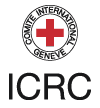 Benghazi. - Prolonged conflicts in Benghazi and the west of Libya have displaced tens of thousands of people inside the country. The ICRC drew attention to this situation on Thursday in Benghazi. The humanitarian organization has distributed emergency medical supplies to more than 20 hospitals and assistance to more than 22,000 displaced people since mid-July.
Benghazi. - Prolonged conflicts in Benghazi and the west of Libya have displaced tens of thousands of people inside the country. The ICRC drew attention to this situation on Thursday in Benghazi. The humanitarian organization has distributed emergency medical supplies to more than 20 hospitals and assistance to more than 22,000 displaced people since mid-July.
Heavy fighting in Benghazi is having a serious impact on hospitals. "Services at the main hospitals have been severely disrupted by the unsettled security conditions, the departure of foreign workers, and the acute shortage of medical supplies," said Antoine Grand, head of the ICRC delegation in Libya, who is currently based in Tunis. The fighting has prompted tens of thousands of people to flee Benghazi, while many more have been displaced within the city.
Fighting taking place to the south and west of Tripoli, in the western part of the country, and in Sabha and Ubari in the south, is also causing displacement and affecting the response capacities of the main hospitals and other health-care facilities there.
"There are frequent shortages of fuel, power and water supplies in the violence-affected areas; the prices of basic foods have soared, and infrastructure has suffered major damage," said Mr Grand. In addition, the security situation in some parts of the country has seriously deteriorated, making it extremely difficult for local and international humanitarian organizations to reach the victims.
"We are reminding all parties to the conflict that they must respect health-care workers and facilities, and facilitate their work," said Mr Grand. The lack of safe access to health care that has resulted from the violence is likely to have significant humanitarian consequences.
The ICRC is providing support for the Libyan Red Crescent, the main humanitarian organization working in the country. Through its extensive network of 35 branches and more than 2,000 active volunteers, the Libyan Red Crescent has been delivering assistance, evacuating the wounded and the dead, and negotiating humanitarian corridors wherever fighting has been taking place.
"Although our international staff were temporarily relocated to Tunis in July owing to the escalation of violence in Tripoli, we continue to respond to needs and to do our best in a very volatile security environment through our local staff and the Libyan Red Crescent," said Mr Grand. In all, the ICRC has 140 staff based in Tripoli, Benghazi, Misrata and Sabha.
Source: icrc.org








